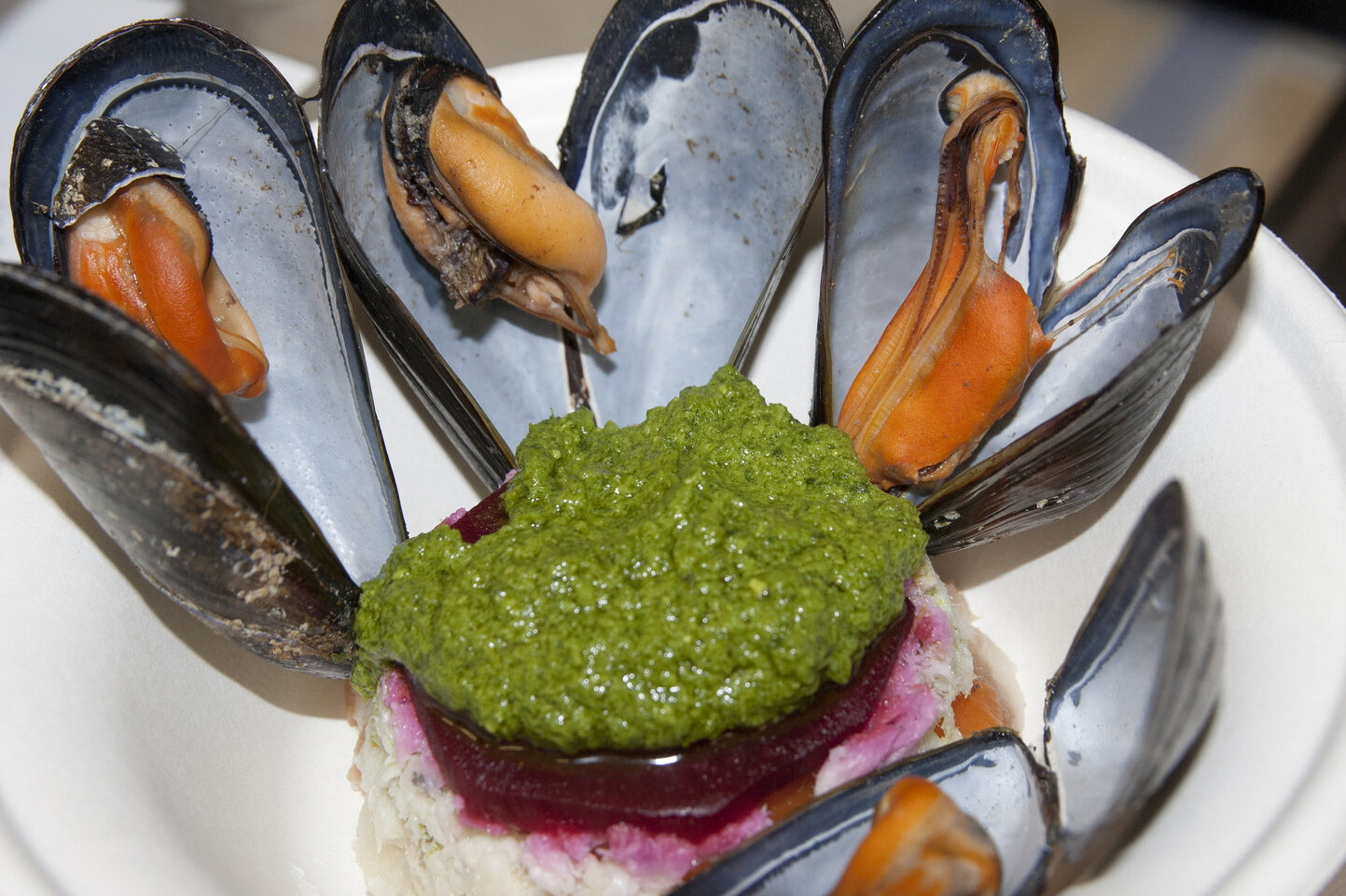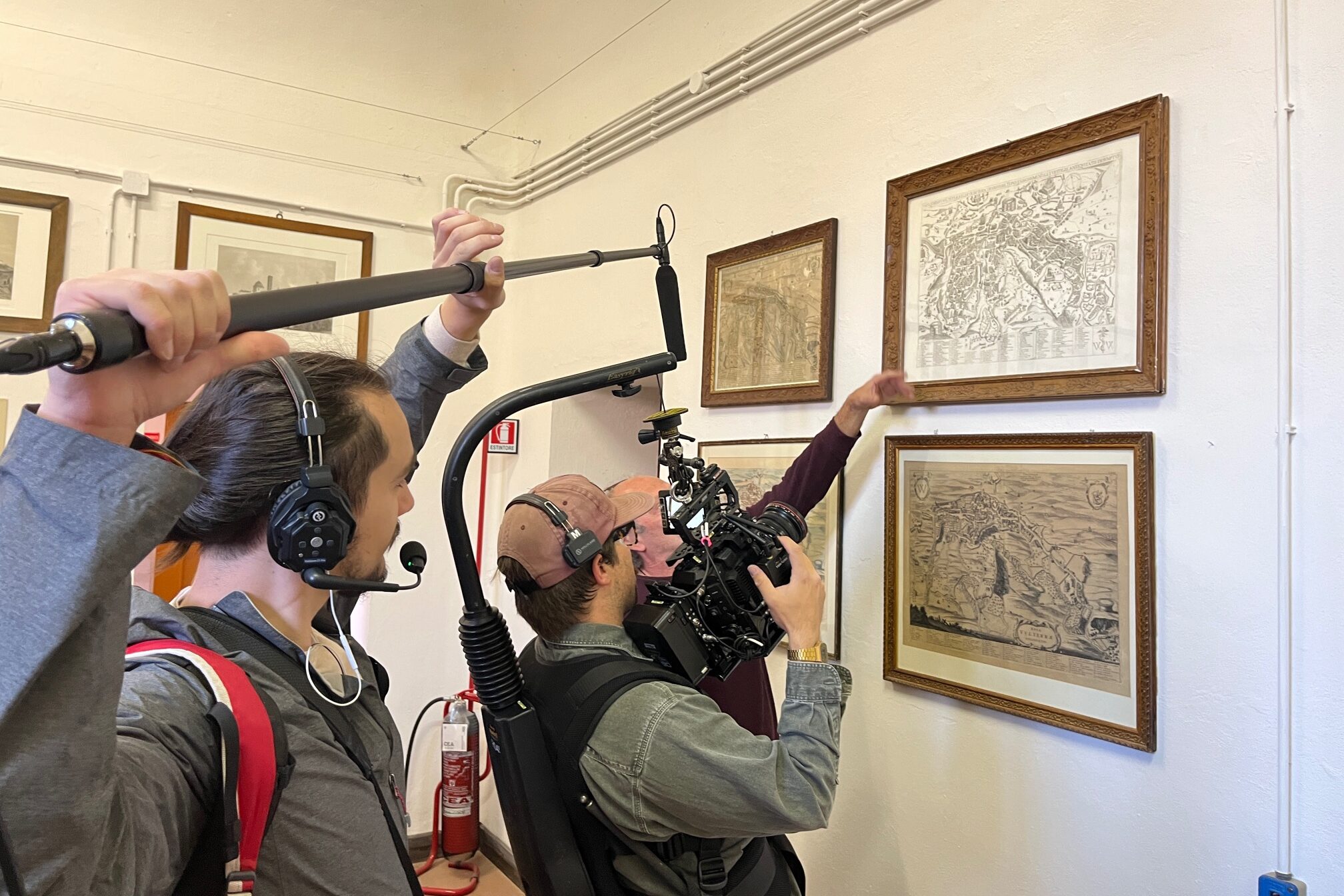The two lands designated in the title of Joseph Luzzi’s new non-fiction book My Two Italies (Farrar, Straus & Giroux) are embodied, on the one hand, in the rural southern traditions that his two Calabrian immigrant parents maintained in suburban Rhode Island throughout his childhood in the 1970s and ‘80s and, on the other, by the illustrious Florentine culture of Dante and Michelangelo that Luzzi has devoted himself to studying, teaching and writing about as a distinguished Professor of Italian Studies.
Luzzi’s book is an exemplary, lively, and thoughtful tale of the immigrant experience in America. But it also provides insightful discussions of such topics as the relationship between Italian and Italian-American culture, contemporary Italian society and politics, and how themes explored by Dante 700 years ago continue to exert a profound influence on the many Italies we inevitably talk about when we talk about Italy.
I had the good fortune to interview Professor Luzzi last week via Skype.
SV: Your parents, like so many immigrants to America, grew up in the rustic south of Italy. But your father’s experiences as a young man are quite particular, involving near death as an Italian prisoner of war in Germany, marriage to and then abandonment of his pregnant German wife, and, back home in his hometown in Calabria after the war, a staged rape attempt of your mother to assure he would not lose her to a rival suitor.
Now, such things—along with others like the butchering of goats and pigs you witnessed as a child in your own backyard in Rhode Island—are the harsh realities of our forebears’ lives. But there’s a tradition that we don’t talk about such things outside of the family. You write poignantly about how much your father kept to himself in America, and it makes me wonder how hard was it for you to let such things out in the book?
LUZZI: I never took lightly what it meant to tell stories of my family that they themselves said so little about, and that they might prefer to keep private. In fact, before I published this book I called my best friend and said, “I don’t know if I can do it, these are family secrets. Is this the right way to repay a family that sacrificed so much for me?”
My friend’s reply was that, first of all, the story is told in a spirit of generosity and not criticism or judgment. And, second, readers will understand that this was a very different time, a very different culture.
Then I thought that the alternative to telling their story was silence, and oblivion. That these people who meant so much to me, and whose story is both unique to themselves and representative of so many others whose journey and struggles have not been recorded, would simply be forgotten.
So, yes, it was a hard thing to relate some of the more violent and even somewhat cruel aspects of my family’s history, but the alternative of silence, oblivion and forgetfulness, was much worse. That’s true death.
SV: You write that even thousands of miles (and years) from their hometown your parents never ceased to be Calabrian. But the question of establishing your own ethnic identity wasn’t so easy, was it?
LUZZI: When I was growing up I wanted, like most kids, to fit in. Which meant, to be American. Now, I was born and raised in Rhode Island, but at lunch other kids in my class had peanut butter and jelly sandwiches, while I had a pepper and egg sandwich, which was dripping oil and which, compared to theirs, kind of reeked. Now the pepper and egg sandwich might actually taste a whole lot better, and I’d certainly be the envy of today’s “foodies.” But back then I wanted to live what I thought of as an “American lifestyle,” not the Calabrian one of my parents.
At the same time, though, I also didn’t feel Italian, as I knew that the southern Italy of my parents was not represented in the images of Italy on television or in movies or in art books. Nor did I feel Italian-American, as that culture—of Little Italies, of certain dishes and festivals—is the product of the mass emigration of the early 20th Century. My parents and older siblings came over in the late ‘50s, and a lot of the struggles the early immigrants faced weren’t issues for us. Nobody ever discouraged us from speaking Italian, or Calabrian, for example.
Uncomfortable as it may sometimes have felt growing up between these three cultures, though, it was helpful in writing this book. It allowed me a useful bit of distance from each of them.
But by the time I finished writing it I learned two things. First, that I wasn’t actually writing a book about living between cultures, but a story of immigration and exile. My family had been subsistence farmers in Calabria, but that land was my father’s as America never was. I had studied Dante’s famous writings on the pain of his own exile, but writing this book really brought together, or brought home, you might say, what I had read and what I had grown up with.
And, second, though many of the book’s readers have been of Italian descent, I’ve also heard from a lot of readers who are not, and for whom the story also resonates, recalling aspects of their own family’s experiences. It’s been a concrete reminder of just how many Americans have this in their family background, how important it is for so many of us.
Moreover, by the time I finished writing this book any ambivalence I’d felt growing up, any desire to escape from my family’s past, had been replaced by a new appreciation and reverence for them and their traditions.
SV: You mention in the book that as the son of immigrants you don’t have the romantic notion of the mother country that many Italian-Americans do and that your own seven-year-old daughter probably will, distant as she is from the hard reality of your parents’ lives. Giacomo Leopardi is one of the great Italian writers you talk about in your book, and it was he who famously asserted that life was hardly livable without a certain degree of illusion. To love Italy must we squint at certain realities, reducing it to just a garden of eden under the Tuscan sun? Or can we accept complexities—like those that drove so many of our ancestors to leave Italy in search of a better life—as you come to do in the course of your book?
LUZZI: Well, illusion certainly plays a central role in Leopardi’s writings, but there are two ways of looking at the term. One, is that it’s all just lies and falsehoods. But we can also think of it in terms of imagination, of make-believe as it is practiced in the arts. And I think it’s the second version that is important.
I don’t think it has to do with kidding yourself, or accepting a false version of Italy, because I’m always amazed when I meet Italians—those who live in the country and know all about its problems—by their great love of nation. In spite of their complaints, they love it there, and so often it comes down to something I noticed when I visited my family in Calabria.
My Uncle Giorgio was very poor growing up. He’d been a shepherd, then a rail worker, never had much money, lived very modestly. And yet one day he quoted to me from Dante, a couple of lines about “Ugolino lifting his mouth from the gruesome meal….”
Now this wasn’t a literary man, he’d had very little education, in fact. Yet these lines had stuck with him, and I think it’s because art, and literature, and the food, is a large part of what it means to be Italian. Even if you’re not a member of the elite culture, it’s everywhere you go—in the architecture, in the cooking, in the facades of the buildings. This world of created beautiful things is just part of what it means to be Italian.
And I think this is related to Leopardi’s idea of illusion, the fact of being surrounded by such splendors and creations of the imagination. This idea of a world in which imagination and creativity and illusion-making has resulted in so much splendor and art and living culture can’t help but have an effect on you.
For 700 years, going way back to Dante’s time, people have been expecting the collapse of the Italian political system. But there’s something incredibly resilient about the Italian people’s ability to withstand political crises, and I think part of this comes from the unifying force of Italian culture. Even in those centuries before there was a unified Italy.
Of course I also know that Leopardi was inclined to be very nihilistic in his use of the word illusion. But this idea that art can be such an important part of everyday life, whether it’s the customs of the tavola italiana or other facets of what I call “the fine art of being Italian,” continues to have a strong pull on a great many people. Both those with, and without, an ancestral connection to the country. It’s what keeps all of us going back.
Italian culture, finally, is a great mystery that to this day keeps generating different responses. We never figure it out, but, hopefully, our responses to it are interesting or enlightening, worthy of the country and people that inspire them.





























